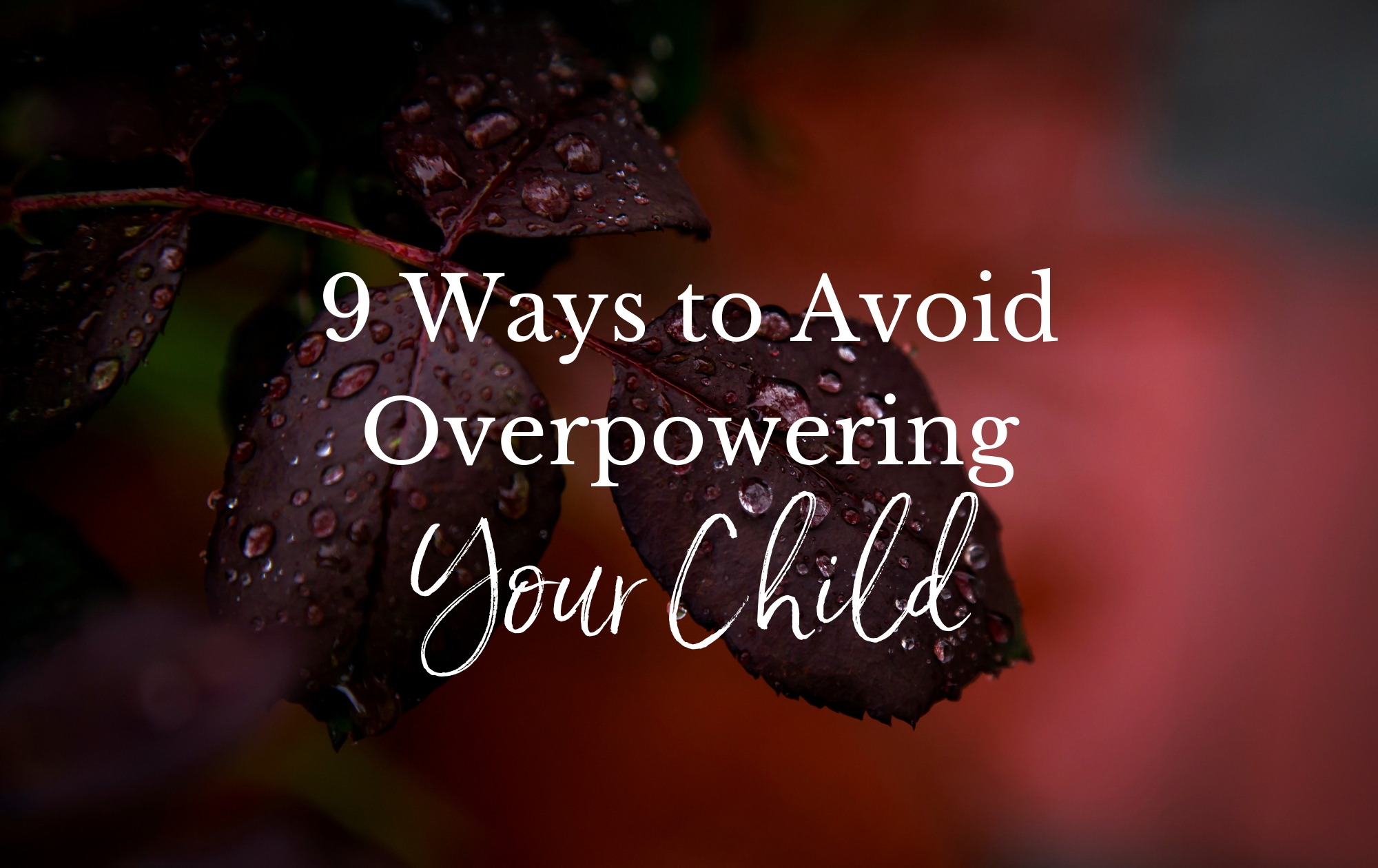1. Remember that our children naturally want to cooperate.
If they aren’t cooperating, there’s something important going on for them that we need to understand and address before they can return to their natural willingness to cooperate.
2. Listen to what you are telling yourself about why they aren’t cooperating.
If you’re thinking that they are doing it deliberately, or aren’t respecting you, or are trying to wind you up, you’re likely to want to overpower them. Instead, I invite you to be curious about why they aren’t cooperating, (by the way, when we get curious about them, we start to feel connected with them again).
3. Take action to feel more connected with them (so you’re less likely to be tempted to overpower them.)
When we feel connected with our children, we rarely (if ever) get tempted to overpower them. Looking in their eyes can help; putting your arm round their shoulder can help; slowing down and really looking at them can help you reconnect to how much you love them.
4. Remember that when you are feeling happy and connected, you want to cooperate with the people you love.
It’s only when you are feeling upset and disconnected that you to things to your children and loved-ones that you regret. Your child is the same. She only acts in challenging ways when she is feeling upset or disconnected. She needs more connection and help from you at those times, rather than force.
5. Change your posture, so you can feel power in your body.
You might find that standing up with both feet on the ground, standing tall, unclenching your fists and your jaw, helps you feel true power in your body.
6. Understand that it’s when we’re feeling powerless as parents that we resort to power-over our children.
Claiming your true power means you won’t feel desperate about making them do what you want.
7. Choose new beliefs about power.
The old power paradigm meant using power over people with less power (like women and children). Guilt, shame, punishment and violence were the ways power was expressed. Instead, I love more modern beliefs about power ~ that power is our capacity to choose; to have an impact on others; to make a difference; to be connected with others whilst they feel powerful, to create a power circuit which keeps the power flowing.
8. Practise power practices.
These are things that help you feel powerful in your body, so you’re less likely to feel powerless with your child. Each of us has our own power practices. For you they might be bike riding, swimming, yoga, dancing around the kitchen, singing your favourite song, making conscious choices about what food you eat or buy, and so on.
9. Explore and heal from your powerlessness sweet spots.
When we feel powerless with our children, sometimes it’s because we’re being reminded of a time when we felt powerless as a child. In that moment we become a five-year-old, and they become the parent, teacher or doctor telling us what to do or not listening to us. Ask yourself what this situation reminds you of, how old you feel, and listen to that younger you with empathy and compassion. This way, you heal those sweet spots so that you’re less likely to feel powerless when your child refuses to brush his teeth.
If you want to learn more, you might like my Powerlessness, Power-over and Power-with in Parenting Masterclass HERE.
And my Power and Powerlessness in Parenting Course is HERE.
